
by Jessie Cooper | Jan 18, 2021
Last week I wrote to you about being lost within the forest of life. I believe as humans we all get lost during periods of our life for a multitude of reasons. In the forest, there are both light and dark paths. It’s up to us to navigate them. Underneath the leaves that crunch beneath our feet lie the reasons we are lost. The sun guiding us out is the light within us reminding us that we are worthy of love and belonging.
So what are these leaves that have distracted us from our true knowing, worth, and belonging? On the surface, they look simple and can be seen as harm created by the outside world. The world and humans within it can easily present us with pain. The pain that stays is beneath the surface–beneath the leaves. You see, when we are presented with hardship we have two choices. The first is to let it roll off us and move on and the second is to metabolize it and take it as our own.
Working Through Hardship
None of us are born with a guidebook of what is real and what isn’t. We’re born into this world trusting it and the people around us to guide us. When the world and people around us tell us we are unworthy, broken, or can’t provide for our basic needs it becomes a scary place. We then start to look outside ourselves for confirmation that we are in fact worthy, whole, and deserving of having our needs met. This is true for every human being. If you are measuring your worth by taking from others mentally or physically, however, you are not giving yourself what you need. You are stealing and continuing the cycle of abuse.
As human beings, so many of us stay lost like this. Thinking that our self-worth is out there and not in here behind our beating hearts. I know I get lost like this. I want to feel love just like everyone else and have suffered abuse which still makes me feel small and broken. I tend to overperform and overachieve from a place of wanting to prove my worth versus creating because it brings me joy. I’m lucky that I have an amazing work team who calls me on my bullshit and tells me to go take care of myself when I’m trying to pull that crap at the office. I’m even working on building a tribe at home that calls me out on this behavior. As I reflected this past week on why I do this, I found a common denominator; rejection. Let me say more.
Moving Past Rejection
When I’m looking at myself and when I’m overachieving or over-functioning at home I’m trying to create external worth. This is deep-rooted within me as a woman wanting to please people, a survivor of domestic violence, and my own longing to be loved. When I feel rejected it can hurt like hell because I have so much love to give and want to receive it. As I sat with this thought over the past week I began to think about the rest of the pain of the world and the work of Brene Brown regarding shame. Shame tells us we are small, unlikeable, and there is something to hide about ourselves from the world. Shame tells us we are rejected.
I believe when people feel rejected by the world the only way to fully heal is to love ourselves with our whole hearts despite our shortcomings as human beings. To find our way back to ourselves the only way home is to feel the hurt. If we don’t do this we can hurt other people or deepen our own pain. We must acknowledge that we have a need not filled, a desire not met, a broken dream, or feelings hurt. I believe this is the single most important thing those who are suffering can do: hold the pain and honor it. If we do not honor our pain and cherish ourselves we lash out at the world or inward on ourselves; often both. When we lash out at the world due to pain we hurt other people and make them suffer because we are suffering and running away from our fears of never belonging. When the pain is lashed inward it can create conditions like depression and anxiety.
Acknowledge Your Pain
This I know to be true. Being rejected and having your dreams broken hurts like hell. Yet if we don’t acknowledge that we are hurting we will hurt other people. Hate begets hate. When a person stuck in hate finds a person who doesn’t know their full worth, abuse can set in. Each person feels rejected and one is lashing out while the other is taking the lashing. In a situation like this, both people feel rejected. Don’t you see? If the person lashing out stopped and felt their own hurt they would not hurt another person. If the person being lashed knew their own worth they could gently ask the person lashing out to leave. If each person knew their own worth they would take the time to heal because knowing our worth protects our hearts, spirits, and minds.
The only way to unturn the leaves is to be brave enough to look at what’s beneath them and find out what’s keeping us from our worth. As we unturn each leaf of pain we’re able to hold that pain and provide care for ourselves. Rejection is just the outside world’s way of saying, “I’m hurting myself, I’m insecure, I have pain.” Don’t swallow that. Know your worth and walk on–it’s a bright day outside.
Xoxo,
Jessie
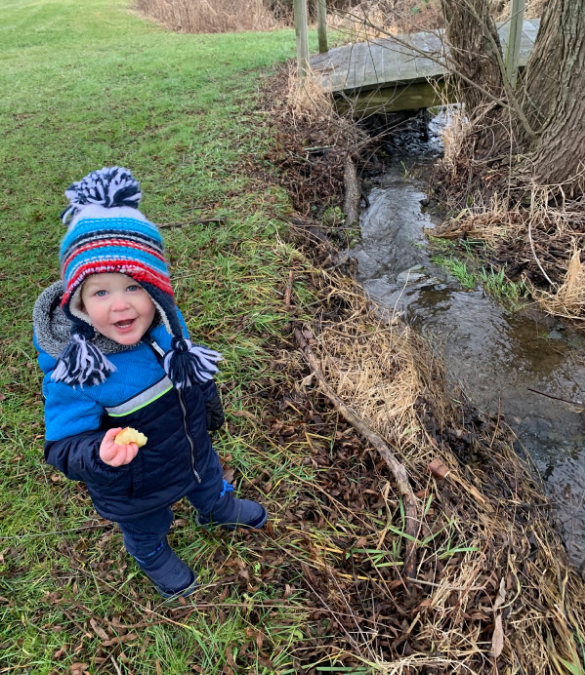
by Jessie Cooper | Jan 11, 2021
As a parent, there are a million joys that come from getting to know your little humans. I’ve always been fascinated by nature vs. nurture. The thing that has taken my heart by storm, however, is children’s absolute knowledge and love of themselves without reservation. My number one job as a mama? Don’t let the world take it from them as it has taken from me and so many others. Teach my sons to honor their knowing and worth.
Looking at Ourselves
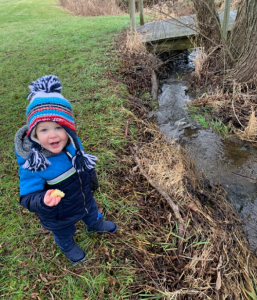 There is an awakening in coming through trauma. It’s like walking through a forest all night and finally seeing the sun slowly peek in to remind us of the love inside of us. The walk is terrifying but deep inside you know the sun always rises; that your worth is real. Yet so many of us get lost in the forest and are never able to guide ourselves back to the sun.
There is an awakening in coming through trauma. It’s like walking through a forest all night and finally seeing the sun slowly peek in to remind us of the love inside of us. The walk is terrifying but deep inside you know the sun always rises; that your worth is real. Yet so many of us get lost in the forest and are never able to guide ourselves back to the sun.
How did we get there, to that dark forest? We get lost and follow the compass of the world instead of the compass of our hearts thinking the answer to happiness is out there. We listen to the noise of the world around us telling us things like, “I’ve got what you need, you are not enough, you are broken.” That noise is lying and pulling all of us away from ourselves.
With the world telling us that happiness is out there and we are inherently broken, our knowing from within gets buried. Materialism, greed, judgment, and power are running our world dry and hearts dry. Yet how many of us have gone through this life thinking if we get the next best car, outfit, house, lifestyle, job, or position we will in fact be happy? That the desires burning in our own hearts are somehow wrong? Then, from the people lost in these lies, we’re also taught what to value and build entire societies based on their belief of scarcity and self-hate. That everyone else must have something that we don’t. That we should all be afraid and protect what’s ours. That right there? That’s how wars get started and Capitals get raided.
This feeling is an emptiness inside of the righteous who are unwilling to look inside themselves and say, “I feel lonely, I feel unimportant, I feel sad, depressed, anxious–like I’m not enough,” and the like. It’s too painful to look inside and see what hurts, so a shield of righteousness is created. Then, those of us who believed the words the world crafted from fear get lost. When we say that our problems come from other people we are simply fleeing from ourselves.
Getting Out of the Forest
If you are of the opinion that your happiness is contingent on someone else giving you something they took from you know this; you are lost in the forest. The world is full of joy, beauty, and happiness but this joy is found in a leaf crackling under bare feet in the fall, not in your new Mercedes. It’s in seeing a child in need of a meal getting to break bread with their entire family. It’s in learning who in the world is without water and then getting water to them. It’s in extending grace to ourselves when we are unkind, then trying again. It is in the pure knowing that inside of our own hearts is more than we have ever needed. That we are all equal. That when a person is suffering the bravest thing we can do is extend a hand not a firearm.
My grandpa was in the navy during World War II. One year, at a family reunion, he brought his trunk from the war and began sharing its contents with us. As he told us the story of his ship being hit by a kamikaze he pulled a spark plug out of his trunk. Grandpa reflected on how as the Japanese fighter lay dying on the ship, his shipmates began shouting and spitting on him. My grandpa recalled telling his fellow shipmates to stop and have respect; this man had a mother too.
So much of humanity is lost in the darkness of the forest believing they will find the path out through hate, force, self-defense, and self-righteousness. If they continue to believe they will find the path this way they’ll be lost their whole lives. Others are lost believing the stories being told by those lost in hate. Remember this; we were all tiny children who knew fully who we were before the world told us otherwise. I’ll tell you all what I tell my sons, “joy is your birthright.” I’m also in need of a daily reminder to myself because joy is my birthright too.
Changing Our Future
Collectively, I believe we are finally shifting within the world to say these fear-based behaviors are not true. It’s a small voice and a loud voice. Behavior rooted in fear is actively damaging to the world. To shift from this behavior, we have to be strong enough to know ourselves and stand up for love and against the damaging behaviors of others; to those still lost in the forest. The only way to do this is to shut down the noise of the world knowing we are enough just as we are. That we are worth love, belonging, joy, and happiness. That we can step away from any path taking us from the sun and choose again.
Through the discomfort of shedding every single thing that takes you from your knowledge, you can be reborn into who you always were before the world told you lies. For you too were once a tiny child fully in love with yourself and the breeze in the trees.
Xoxo,
Jessie
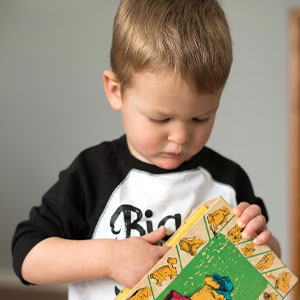
by Jessie Cooper | Dec 10, 2020
If you’re a mom of young children like me I’m sure you’ve had the thought of going to the zoo once or twice. It goes something like this:
The local zoo announces a baby. Let’s say an elephant is born so of course, you go rushing! You get to the zoo (pre-COVID, maybe) and see the beautiful baby elephant, just days old, walking behind their mama. In a short moment, you think back to your child’s infanthood and think, “baby boy(or girl) you had fewer skills than an elephant.” Infant humans, while incredibly squishy, cute, and forever smelling of Dreft and lavender, come into the world with no survival skills.
There are thousands of articles on the importance of early intervention. I spent my bachelor’s degree diving into many of them, followed by stocking my brain with new findings for the past decade. This is in part because I am a researcher by trade. The other part is because I am a nerd for human development. It fills my bucket. In my blog today I’m going to try and give you a snapshot of why development from infancy through kindergarten is so vital. I’m also going to talk about why it’s important for children with autism and our amazing clinics at Instructional ABA Consultants.
Focusing on Child Development Early
OK, let’s get started by going deep. Human infants are born without any skills because their brains need more time to develop than all other mammals. If babies grew into functional toddlers in the womb they could not come out of the birth canal. Women’s bodies are incredible but they aren’t magic; there is a limit to the size of what we can birth (yes, I’m grimacing as I’m writing this because medication-free birth with a newborn is magical, but birthing a toddler? Um…).
So we get these tiny humans, who are desperately in need of being cared for–it’s almost like they are in the womb for an extra three months after delivery. Then they begin to wake up. I remember when both Henry & Declan found their toes and fingers in amazement around three months old.
During this first year of life, thousands upon thousands of neuroconnections are made. Babies are quickly developing their brainpower, motor skills, and language through these high-speed connections. To do this babies need a few simple things. Infants need to be nurtured, to know that when they have a need their parent responds. This creates a secure connection and lets baby know the world is safe. Babies need food and lots of sleep. Once these basics are covered we move into the two most important things; environment and socialization.
Early Socializing & Environments
I like to think of babies, toddlers, and children as little scientists learning through cause and effect. The environment is a huge blank canvas for our children to discover how their world works. Socialization is the tool children need to survive in our culture.
In their early childhood years, these two pieces are so incredibly important because of the rate children can learn. From infancy to year five, children will learn more than any other time in their lives. “What about college,” you say? Nope. These foundational years are the years where connections are made in the brain that last a lifetime.
As a professional, I love looking at how all this heavy lifting helps to shape the outcome of children’s lives. As a mama, I drove myself crazy after Declan was born and I realized I was basically running a school in my home for Henry. This wouldn’t be possible with two kids under two.
This was insanity in hindsight. This was also when I was personally able to take a deep breath and remember what I knew. The two most important things are environment and socialization. It’s not about how “cute” my day is with my boys. It’s about how often they are able to explore and engage. These days you won’t really find me teaching at a table much. Instead, you’ll see a “yes” environment set up (more on this later but basically a safe space to learn), technology out of reach (no TV/no Tablets on the regular as these devices delay both language development & socialization), and lots of talking.
Henry and Declan get to flex their learning muscles through exploration and language. I get to flex my relaxation muscle by not trying to do it all. I’m lucky in that way because my children do not need intervention. If they did I would not be able to sit back because these experiences would need to be contrived. That’s why ABA is so helpful for young children with autism. Here’s why.
The Importance of ABA Therapy for Autism
When a child has autism the neural pathways or roads in the brain that tell that child how to communicate and process information are not forming, either naturally or as quickly as a neurotypical child. The connections are still there to be made but without intervention, a child with autism can’t connect the dots. What this looks like in each child with autism is different but always results in some form of socialization or communication developmental delays. This leaves the child with autism lost in their social world and wondering how to connect.
In applied behavior analysis (ABA), behavioral scientists (BCBAs) are able to assess the language and communication skills missing in early childhood based on developmental milestones. Children with autism are gifted learners but they learn differently because their neural pathways are routed differently. Through assessment, BCBAs are then able to figure out how our little students learn, what skills are missing, and how to connect those missing dots. This happens in three really key ways.
The first is one on one therapy (think personal trainer at the gym) to really teach to the student. The next is to help the child with autism apply what they are learning with their peers. Remember, socialization is hard but children who are neurotypical learn from other children. To strengthen the socialization neuropathway, children with autism need to practice these skills with kids their own age. The last is transferring learned skills back to mama and papa. If a child with autism is in therapy and can do all these skills at a treatment clinic but not at home, the neural pathway is not fully formed.
Therapy at ABA Consultants
Instructional ABA Consultants runs autism clinics for children ages 2 ½ to 6 years old (in addition to our home-based therapy for older children). Our clinics (Naperville & Oak Lawn IL, Castle Rock CO, and coming soon Northside Chicago) have a Preschool Instructor designing the socialization component of our students’ days and BCBAs designing the individualized instruction. Parents are at the core of treatment goals and together we’re helping their precious children make connections in their early development.
Whether you’re a parent of a neurotypical child or a child with autism know that your child’s early years are precious. While we all can dream of our children functioning like that baby elephant walking around fully skilled, the reality is human babies and children need shaping. We’re a social species.
So set down the tablet today, pack up all the toys the marketing teams said you needed, and let your children explore and enjoy. If your child isn’t exploring, jump in and help. If you need help teaching these skills because your child has autism (or this is a new way to parent for you) reach out. We’re all in this crazy world of parenthood together.
XOXO,
Jessie
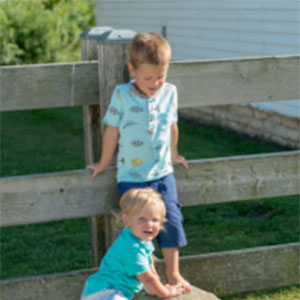
by Jessie Cooper | Dec 1, 2020
Okay, okay I hear you. That title! It’s a loaded one. I thought I’d just have a little fun this week with wrapping up our series about functions of behavior. I’ll explain the title in a bit.
Over the past month, IABA has republished my series on functions of behavior because it’s such an important part of working with children. It deserves an annual highlight! As a BCBA, owner of an Applied Behavior Analysis company, and boy mama this little piece of scientific knowledge guides so much of life.
Functions of behavior give us the framework for why a behavior continues to happen and lets us breathe easier knowing that all behaviors have a reason. We can start building our plan of action to address whatever it is we’re interested in changing once that behavior is identified.
Learning About Functions of Behavior
Let me back up a little and tell you why learning about functions of behavior was so life-changing for me. In doing so I’m going to go ahead and date myself. Thirteen years ago I was working as a line therapist with adolescent boys with autism who engaged in high levels of aggressive behavior. At the time there was little regulation in the applied field and while I was supervised by a BCaBA. I was not using function-based intervention because she wasn’t designing her treatment following this principle. As a new undergraduate, I knew I didn’t want to continue to work with children with autism if I couldn’t be effective. I was so frustrated for the children that our interventions weren’t working. I then decided to apply for my master’s degree with a goal to better understand behavior. I’ve been enjoying this gift for 12 years now.
One of the first things I learned in my master’s program was that behavior is maintained by the four key functions I’ve reshared this past month; escape, attention, access to tangibles, and automatically maintained behaviors. When a problem behavior occurs you want to make sure not to reinforce the behavior with what the learner is seeking.
My beautiful clients from back home? We were directed to put them in time out every time they engaged in aggression and their behaviors were maintained by escape functions. This meant each time they engaged in aggression, putting them in time out told them we were saying, “yes! That’s what I want you to do.” What should have been done instead is follow through with demands and teaching the boys how to tell us they needed a break. Their lives could have been changed using our science properly. This is a large piece of why I love ABA so much; lives change.
Using Functions of Behavior at Home
Fast forward to today and the wrap of our series. Learning about functions of behavior can be overwhelming. To think that all human behavior can be categorized into four sections and then studied from there is work by itself! This is the work we love at Instructional ABA Consultants but let me tell you this first hand as a mama, that shit is hard at home.
Raising Henry has been one of the greatest blessings of my life (Dametrius and Declan are the other two). Henry, as I’ve written, is a strong-willed child with a great big heart. Henry feels and responds to things the moment his feet hit the ground. This brings me to the title.
About a year ago I was transitioning Henry to a booster seat from his high chair. It’s a value of mine that my boys eat at the table and don’t wander around eating or zone out eating in front of a screen. I love food and want us to enjoy it together as a family. Henry? Henry had wanted no part in this family value.
I knew the function of his daily battling was escape from the table and followed him through each time for sitting. He would not back down. Frazzled, I went to my team saying I was now six months in and I still had to use strict follow-through at every meal to get Henry to sit and the end was nowhere in sight. One of our BCBAs (now supervisor & PhD!) Allaina Douglas said, “Jessie you have to pick your mountain to die on.”
What she meant was if this was an important value to my family that I would need to let go of other demands through the day that were less important and literally buckle into sitting at the table. So that’s what I did. I sat down and thought about what was really important for me with Henry so that when I made any demands, including sitting, I knew I had to be ready to follow through. This allowed me to lighten up on what wasn’t a value (PJs all day? Sure! Tv all day? No way) and hone in on what I did want to see out Henry.
Henry responded beautifully to this regarding the sitting. We then of course entered the 8-month potty training saga but hey, you win some, you lose some, but I digress. In the end, I understood that as a mama and clinician I couldn’t be function-based all day every day. That shit is exhausting. I could pick my values so that I could decide which behaviors will be allowed in my home and which ones won’t be. As my children grow up this will provide them their own moral compass to follow. I parent Dametrius way differently than Declan and Henry (as he is older) but our values are still the same.
Functions of Behavior and Being a Mom
This leads me to the second “purely mama” part of this. When you are choosing to live in a home where you are the leader and not your children it takes an incredible amount of energy. It would be super relaxing and wonderful if we could all say yes to popsicles for breakfast and binging Netflix every day. For most of this, we have different values than that for our kids (zero judgment here if these are your values!).
Being a leader in the family means you will have to implement rules and therefore boundaries. This is work! In order to do this, we as parents have to learn how to rest, reflect, and take care of ourselves so we can implement our values in the home. When we don’t we risk either giving in or blowing up. While this happens to the best of us, I know personally that I want this to be the exception to my parenting, not the rule.
In order to do the meaningful work of choosing what goes in your home and standing on that mountain, we as parents have to be at home with ourselves. That means spending time with our own thoughts, deciding our own values, and creating a self-care plan. The time with your thoughts and deciding values provides a compass for your home. Remember, attacking every single behavior and function in your family home would be exhausting! Picking your mountain means picking what’s important to you.
The self-care plan is included because, let’s be honest, as a mama or papa shit gets real fast. At any given moment our children are doing the next “please don’t do that thing.” We can navigate through our days with intention (most of the time!) when we’re rested and healthy. For me, this looks like morning meditation, evening journaling, and drinking more tea than wine these days. It also looks like saying I’m sorry when I do slip up and yell or holding myself accountable if I gave in when I didn’t want to.
Last night Henry had a high-emotion night because it had snowed and he really wanted to go outside to play at bedtime. I had to say no, it was bedtime. But I sure as shit could say yes when he asked me for a cool down bath with his swimsuit on. Rock on Henry, rock on Mama! We followed our values and I sat on my mountain. I hope this helps you find yours.
Xoxo,
Jessie
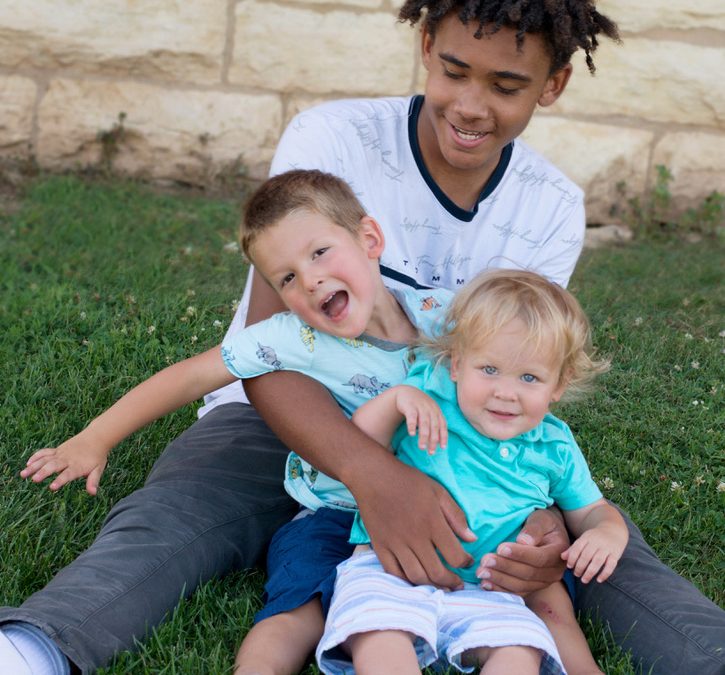
by Jessie Cooper | Oct 14, 2020
You guys, this past week has been a long and dark one. I’m so thankful for being able to write this blog. You see, I believe the universe has divine timing when we are connected to it. It always provides the lesson we need if we’re willing to listen.
I talked about why we care what others think of us and how that affects being a love warrior in last week’s blog. This led to a week of clearing a lot of energy to pave the way for living connected to my own divine nature and authentic voice. Through finding the strength in my voice I’m able to give my children the example they need to grow up using theirs. I can then also use my voice to empower other mamas to raise love warriors. Let’s dig in.
Embracing Love by Denying Hate
Okay, I said this past week has been a long dark one. The universe has been sending a lot of negative energy my way through different interactions. People have been coming into my life with their own insecurities and I have been asking them to leave (politely). I’ve been doing this using vulnerability and defenselessness. For, as my friend Heather reminded me, “Our strength is in our defenselessness.” I have nothing to hide and no space for hate.
As human beings, we all have traits we exhibit when we are in fear and therefore in defense of ourselves. In the current world climate, I believe we’re unpacking generations of keeping up appearances at all costs. Then, when our perceived sense of self (our ego) is brought into question, we may explode at others. Does this make sense? And that’s been exactly what’s been happening to me, people are exploding and I’m calming saying, “hate begets hate, this is not the way.”
It’s like a mask to protect ourselves from what we fear to be true about ourselves. The most common example is when someone points out something to us that reminds us of what we’re ashamed of, so we attack. Everyone does this but most people don’t consciously do it to hurt other people. If they do that’s a whole different issue.
In this defense of self versus defenselessness what happens is we can become the person other people are saying we are. We think by lashing out and becoming the biggest person in the room that we’ll “show them” how wrong the attacker is and how right we are. You guys, this is totally backward and the foundational problem to almost every human problem in the world.
You see, we are all born divinely. The spirit creates us for this perfect path. And then we meet our environment. The environment is the people, places, words, and experiences that we all go through. If we’re lucky, we’ll be born into a home that lifts us up and teaches us to live with a brave heart. If we’re not that lucky, we’re taught to fit in and push down who we truly are.
This could be from well-intentioned parents who don’t want their daughters to be fat and bullied, or gay and bullied, and so on & so forth. Or it could be from your own childhood insecurities or your perceived identity that you want your family to look like outside of the home. Even worse, it could be from an emotionally or physically abusive home. But here’s the thing; at any time we can all collectively decide to call bullshit on who the world is telling us to be. That’s a love warrior. And love warriors need strength and armor to protect them from an environment that can crush their divine nature.
Raising Your Love Warriors
There is only one way to raise a love warrior; be a love warrior yourself. That’s it, you guys. Our children demand that we love ourselves with our whole hearts because it shows them it’s okay to love themselves with their whole heart. If we continue to conform ourselves to fit into the new mom group, the gym, work, finding a ‘perfect’ partner, or living up to our family’s unrealistic expectations of ourselves, all we are really doing is telling our children to fake who they are.
If our children fake who they are they will lose themselves. I don’t know about you but I’m a grown-ass woman just now fully waking up and standing tall as myself. I’m not going to lie–it’s hard as hell. I have to model this strength for my children so when the world gets noisy they have the armor they need to be true to their own hearts.
I don’t know about you but I do not want my children to ‘fit in,’ ever. I want them to soar through the world on the wings God gave them, roots in the earth. In my house we stand up to bullies, we stand up for ourselves, we stand up for what is good and what is kind. We honor our imperfections, hold space for failure, make mistakes, and love freely. In my house we believe who we are is exactly who we are supposed to be.
Noisey world or not, we’re at home in our hearts and nothing matters more than that.
Xoxo,
Jessie
P.S. Total credit to the amazing Heather Shannon, my soul sister. And with love to my Aunt Linda.



 There is an awakening in coming through trauma. It’s like walking through a forest all night and finally seeing the sun slowly peek in to remind us of the love inside of us. The walk is terrifying but deep inside you know the sun always rises; that your worth is real. Yet so many of us get lost in the forest and are never able to guide ourselves back to the sun.
There is an awakening in coming through trauma. It’s like walking through a forest all night and finally seeing the sun slowly peek in to remind us of the love inside of us. The walk is terrifying but deep inside you know the sun always rises; that your worth is real. Yet so many of us get lost in the forest and are never able to guide ourselves back to the sun.


